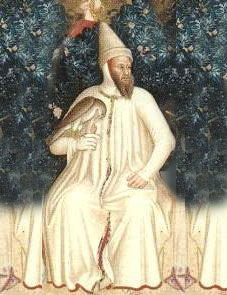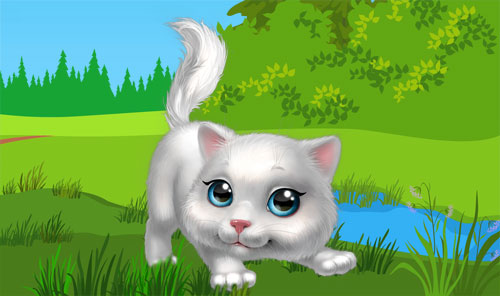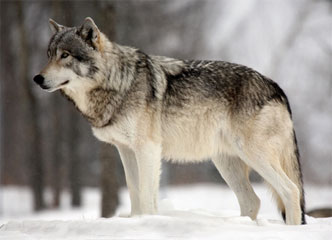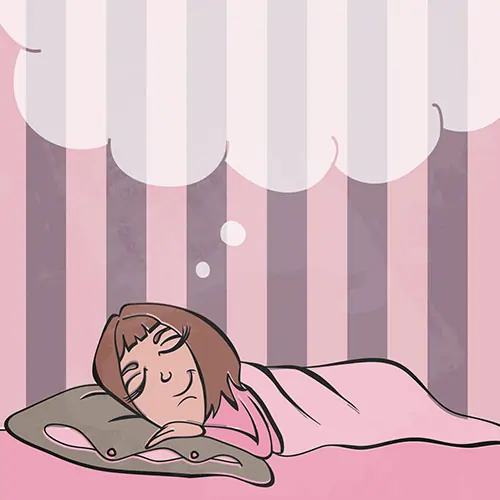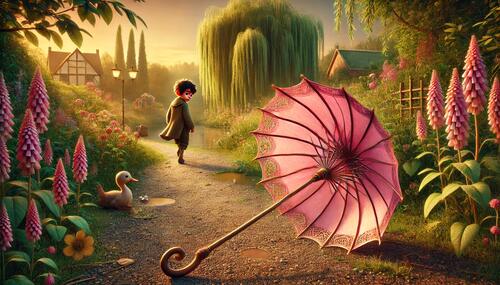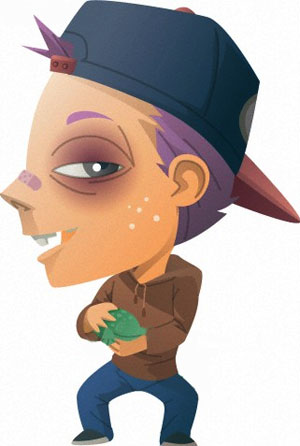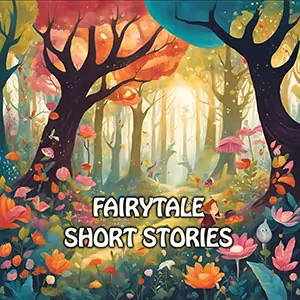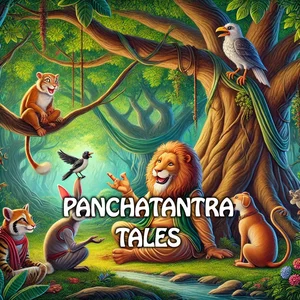Short Stories » Hootay of the Little Rosebud
Hootay of the Little Rosebud - Page 1 of 5
ON the south side of Scout Butte there is a crescent-shaped opening, walled in by the curving sides of the hill. This little plain cannot be seen from the top of the butte. There is a terrace upon its brow on which a few scrub pines grow, so regularly that one would think them set there by human hands. Half-way up the incline there stood at one time a lone cedar-tree, and at its foot there might have been discerned a flat, soft mound. It consisted of earth thrown up from the diggings of a cavern. The wild people approaching from the south could see this mound, but would scarcely note the entrance to the immense den hidden behind it. One coming down from the butte would not notice it, as there were no signs other than the earth pile. The Little Rose-bud River takes its rise at the threshold of this natural barricade.
This was the home of Hootay, the aged medicine-man of the Little Rosebud country. He was a fighter of many battles, this great and wise grizzly, who was familiarly called Hootay, or Stubby Claws, by the Sioux hunters. They had all known of him for many years. It was believed of him that he had scalped not less than eight braves, and killed even more ponies and dogs. No less than three and ten times the Sioux had made expeditions against him, but each time they had failed. For this reason they declared that he had good war-medicine. Among the warriors it had long been understood that he who takes Hootay 's scalp may wear a war-bonnet. This acknowledgment of his prowess, of course, was not made known to the aged yet still formidable bear.
Up and down the Little Rosebud he had left his well-known imprint, for he had lost two toes on one foot. Aside from the loss of his big claws, he had received several arrow and knife wounds during his warlike career.
Early in the fall, Hootay had felt a severe aching of his old hurts. He had eaten of every root-medicine that he knew, but there was no relief. Instinct led him to early retirement and hibernation.
His new home was a commodious one, well filled with dry grass and pine-needles. It is the custom of his people to remain quiet until the spring, unless serious danger threatens. A series of heavy storms in early winter had covered and concealed all his rakings of dry grass and other signs of his presence, therefore he thought himself se- cured from molestation. There he lay most of the time in a deep sleep.
The Sechangu Sioux never altogether leave this region. It is true that many wander away to the Missouri, the Muddy Water, or follow the buffalo down to the Platte River, but some would always rather trust to the winter hunt upon this familiar stream. This winter, High Head, with his little band of eleven men, was wintering at the old place. Among them was Zechah, a renowned hunter, who had followed this band because of his love for Hintola, the chief's daughter. It had been a long courtship, but they were married at last. Zechah's skill had been proved by his father-in-law, and the arrow test was only sport to him. His unerring aim was now the pride of the old chief.
The party encamped on the Little Rose-bud had eaten all of their fresh meat. They must seek for game. Accordingly, three teepees went farther up the river. The winter was wellnigh over when there came a heavy thaw, and snow-shoes were made for the use of the hunters.
They pitched the* teepees, looking like a trio of white conical bowlders, in a well- protected bottom. Winding gulches diverged from the main stream like the ribs of a huge snake, until they lost themselves in the hills. These dry creek-beds were sentinelled by cedar-trees, erect and soldier-like, which at a distance looked very black, but near by they appeared green.
The party was cheerful. High Head was in the best of spirits, telling the history, traditions and legends of the region.
Next »Hootay Of The Little Rosebud - Takeaway for Class 1,2,3
It's important to be kind and helpful, just like Hootay, who used his special gifts to protect the little rosebud and keep the garden beautiful.
Hootay Of The Little Rosebud - Takeaway for Class 4,5,6
Always be kind and helpful like Hootay, because even the smallest gestures can brighten someone's day and create lasting friendships.
Hootay Of The Little Rosebud - Takeaway for Class 7,8,9
Kindness and gratitude can bring joy and positivity even in challenging times, just like how Hootay's appreciation for the beautiful roses brightened his day.
3 Fun Facts
- Hootay was a curious little brown owl who was very eager to see the world beyond his cozy nest in the Rosebud tree.
- Despite being warned by his mother about the dangers lurking outside, Hootay bravely ventured out and discovered the beauty and friendship in the garden.
- The garden residents admired Hootay's courage and kindness, making him a beloved member of their community.
Quiz for Class 1,2,3
- What animal is Hootay in the story of "Hootay Of The Little Rosebud"?
- Who did Hootay meet while he was exploring the garden?
- What makes the garden special in this story?
Quiz for Class 4,5,6
- What did Hootay use his magic pot for when he was taking care of the Little Rosebud?
- How did the Little Rosebud react when Hootay first showed her the reflection in the magic pot?
- What lesson did the Little Rosebud learn after her adventure with Hootay?
Quiz for Class 7,8,9
- What was the main reason Hootay the owl lived in the little tree hollow near the rosebud?
- How did the relationship between Hootay and the rosebud change as the story progressed?
- Describe how the rosebud felt when Hootay left the tree hollow.
Was this article useful? What should we do to improve your experience? Share your valued feedback and suggestions! Help us to serve you better. Donate Now!
